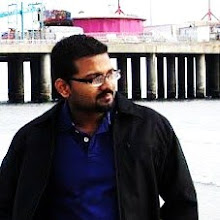It is believed by the historians that the Vedic civilization was established around 4000 BC where Greece, Rome, China, Egypt etc. are currently present. Sanskrit was the world – wide language which was used to recite and chant hymns. Later the Mahabharata war shattered the Vedic civilization and the Sanskrit language became non-existent. After the great war, only a small community, Hindu, spoke Sanskrit and practiced the vedic traditions. According to the Hindus, music was oriented with the first sound heard with at the beginning of the universe; Om, which has a deep connection with the divine power Naadbrahma. Belief was that, a man who is immersed in music is the one who gains eternal purification. Flipping through the history of Carnatic music, it can be discovered that the origin of Carnatic music is divine. Carnatic music is believed to be originated from the Devas (Gods) and Devis (Goddesses). The basis of Carnatic music is the hymns and the worships songs which are sung during sacrifices. The sacrifices which are called yajnas, are offered to Gods by putting agni (fire) as the witness for all the sacrifices. During these sacrifices, the songs were recited accompanied by the instrument veena. Carnatic music which also has a Vedic origin consists of rigveda, yajusveda, samaveda and athravanaveda. From the texts of the Vedas, the Sama Veda, which consists of four Rig vedas, is believed to have laid the foundation for Indian classical music. The hymns in samaveda are composed of three or seven swaras (musical notes). Carnatic music is also said to have a natural origin. Meaning that the swaras structured in Carnatic music are produced naturally from one's surrounding. The natural origin theorized that the swaras are from the birds, animals and our natural occurrences which is heard and perceived by the keen observation of humans. Music was further organized later during 600 BC. Bharata's Natyashastra is believed to have been written during this time. Natyashastra was a text which laid out the rules and/or techniques for Indian drama. These rules were always to be followed in during any performances including dance and music. Also, during this period the swaras were organized into octaves or sapthaks and some of the basics of music such as the rhythm and the tone were also understood.
Thursday, February 3, 2011
Subscribe to:
Post Comments (Atom)

well written and great topic. I like the way you related music to God. There was saying in India that "people who know music, knows God". Music has a hidden power to heal the illnesses of our mind. Who knows man...maybe one day we can integrate music, physics, and biology to come up a new treatment for depression, other small mental illness.
ReplyDelete@Tinman: there is music therapy and it is actually quiet effective :)
ReplyDeleteYouv'e def done some deep research work here Jerrin! :)
thank you. And yes music therapy has already been developed and established.
ReplyDeletehttp://www.musictherapy.org/